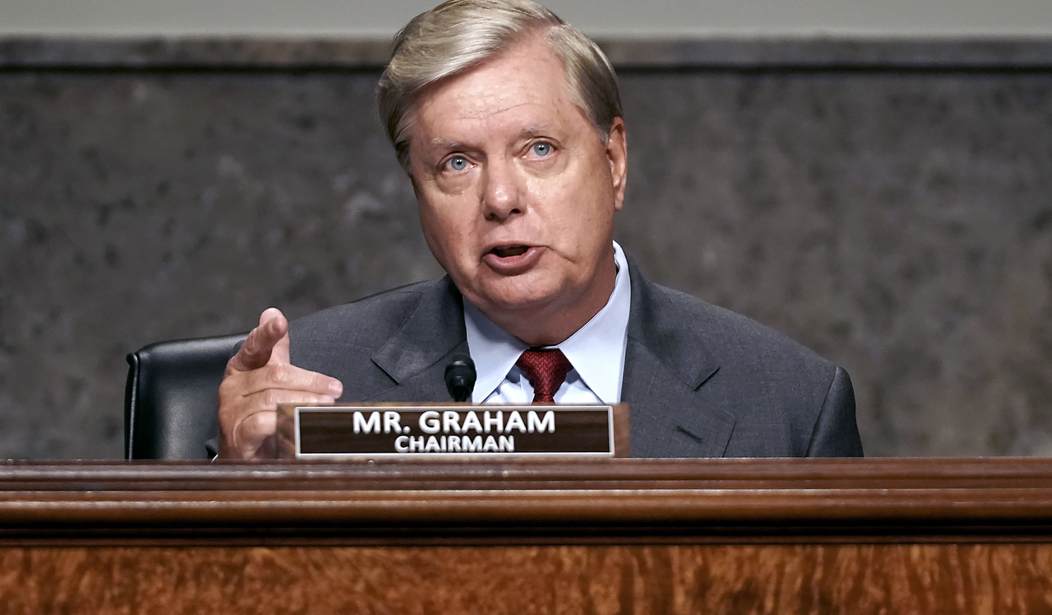Senator Lindsey Graham (R-S.C.) learned Thursday that he has been ordered to testify before a Georgia grand jury examining possible election interference allegations from the 2020 presidential election. A three judge panel of the 11th Circuit U.S. Court of Appeals ruled that Graham’s phone calls in question are not protected under the Constitution’s speech and debate clause.
Lindsey Graham was subpoenaed by a Fulton County special grand jury in Georgia in July, along with others in Trump’s inner circle and members of Trump’s legal team. Rudy Giuliani was also subpoenaed that that time. Giuliani served as Trump’s personal lawyer. Ever since then Graham has fought having to testify to the grand jury about two phone calls he placed to Georgia Secretary of State Brad Raffensperger. Graham allegedly asked Raffensperger about “reexamining certain absentee ballots cast in Georgia in order to explore the possibility of a more favorable outcome for former President Donald Trump” shortly after the 2020 general election. The ruling by the 11th Circuit Court of Appeals on Thursday was a win for Fulton County District Attorney Fani Willis who opened the investigation last year into a phone call between Trump and Brad Raffensperger.
Graham, then the chair of the Senate Judiciary Committee, argued that his actions were protected under the Constitution’s speech and debate clause. He said that placing the phone calls were done under the umbrella of his duties as chairman of the committee. The three judge panel, however, unanimously voted against that argument and in favor of Graham testifying before the grand jury.
“Senator Graham has failed to demonstrate that he is likely to succeed on the merits of his appeal,” and a stay blocking from his testifying should be lifted, the appeals court ruled.
The judges agreed with a lower court’s ruling that Graham’s view of those constitutional protections were too broad, and that he should be able to answer some key questions from the grand jury, including whether he consulted with Trump’s campaign before making the calls.
“Senator Graham has failed to demonstrate that this approach will violate his rights under the Speech and Debate Clause. Even assuming that the Clause protects informal legislative investigations, the district court’s approach ensures that Senator Graham will not be questioned about such investigations,” the ruling said.
It also sided with the lower court’s finding that “there is significant dispute about whether his phone calls with Georgia election officials were legislative investigations at all.”
An attorney for Senator Graham did not comment after the ruling. His lawyers have indicated they will appeal to the Supreme Court if he lost in the 11th Circuit. A spokesman for D.A. Willis declined to comment.
Willis has been clear that she’s investigating Graham’s post-election phone calls to Raffensperger (a Republican) and his staff. Raffensperger said that Senator Graham asked him whether or not he had the power to reject certain absentee ballots. Raffensperger interpreted the question as a suggestion to toss out the ballots, which Raffensperger said were legally cast. Graham denies that was his intention. The subpoena for Graham’s testimony references Graham’s allegations of widespread voter fraud in the 2020 presidential election in Georgia, as some Trump campaign surrogates did.
The Fulton County grand jury is in a “quiet period” through Election Day, Nov. 8.
Also on Thursday, it was reported that former top White House attorney Cipollone testified before the grand jury.
Cipollone previously testified before the House committee investigating the Jan. 6 riot that, during White House meetings at the end of Trump’s presidency, he forcefully pushed back on efforts by others to subvert the 2020 election results.
This matter likely isn’t over yet. I expect Graham to take it to the Supreme Court. Stay tuned.








Join the conversation as a VIP Member